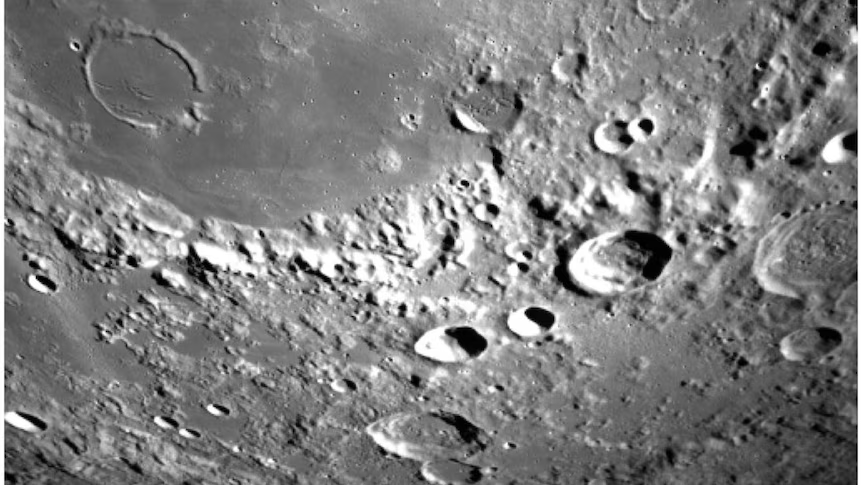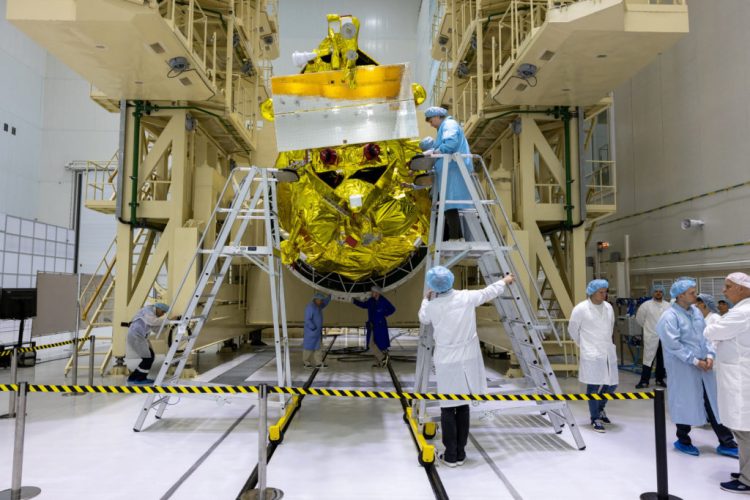Introduction: The New Era of Space Exploration
Space exploration is rapidly advancing, and humanity is on the cusp of a new frontier. The Moon, Mars, and beyond are no longer just realms for science fiction. With breakthroughs in technology, international collaborations, and private sector involvement, space exploration has entered an era of unprecedented ambition. This new phase is characterized by sustainable missions, innovative spacecraft, and an increasing focus on the potential for human settlement in space.
Once the domain of government agencies like NASA, space exploration has now seen an influx of private companies, such as SpaceX, Blue Origin, and Virgin Galactic, changing the dynamic of how missions are conceived, funded, and executed. This partnership between the public and private sectors is driving an exploration agenda that goes beyond the Moon and Mars, aiming for far-reaching targets in deep space.
The next frontiers are not just about landing on other celestial bodies; they are about pushing the boundaries of human existence, science, and technology. As technology evolves, so too does our understanding of space, life, and the potential for humanity’s future beyond Earth. The next decades are set to be transformative, setting the stage for not just exploration but possible colonization of other worlds.
Lunar Missions: The Gateway to Deep Space
The Moon has long been humanity’s first cosmic stepping stone. NASA’s Artemis Program, aiming to return astronauts to the lunar surface by 2025, is at the heart of this renewed lunar ambition. But the goals go beyond mere exploration. Artemis is about establishing a sustainable human presence on the Moon, serving as a testing ground for technologies and strategies needed for long-duration space travel. NASA’s vision is to use the Moon as a “gateway” to other planets, providing an opportunity to test new technologies, life-support systems, and space habitats that will be critical for missions to Mars and beyond.
International cooperation plays a significant role in the Moon’s future exploration. Countries like China, Russia, and India are making strides in their lunar programs, contributing to the Moon’s importance as a site for collaboration. China’s Chang’e missions and Russia’s planned lunar landers provide alternative approaches to lunar exploration, while India’s Chandrayaan mission has opened the door to future partnerships. These international efforts will undoubtedly shape the future of lunar exploration and establish the Moon as a focal point for future space activities.
The Moon’s proximity to Earth, along with its potential for resource extraction, also makes it an ideal candidate for scientific research, mining, and other commercial activities that could fuel long-term space exploration initiatives. With a base on the Moon, humanity could create a more sustainable presence in space, providing us with the stepping stone needed to explore more distant worlds.
Deep Space Exploration: Probing the Outer Solar System
While lunar missions are crucial for laying the foundation, space agencies and private companies are also turning their attention to the outer reaches of our solar system. NASA’s New Horizons mission, which flew by Pluto in 2015, provided groundbreaking images and data, offering insight into one of the most distant regions of our solar system. Alongside New Horizons, the Voyager probes, launched in the 1970s, continue to transmit valuable data, now traveling beyond the influence of the Sun.
Perhaps the most groundbreaking development in deep space exploration is the James Webb Space Telescope (JWST), set to launch in 2021. Designed to explore the farthest reaches of the universe, JWST promises to provide a wealth of data on the early cosmos, the birth of stars and galaxies, and the potential for life on exoplanets. With unprecedented infrared vision, the JWST will allow scientists to peer through cosmic dust clouds and gain insight into the atmospheric composition of distant exoplanets, potentially identifying signs of life.
Moreover, the outer planets, particularly Jupiter and Saturn, offer tantalizing possibilities for the future of space exploration. Missions like NASA’s Juno spacecraft, which orbits Jupiter, and the Cassini probe that studied Saturn’s moons, particularly Enceladus and Titan, have revealed that these moons may harbor the conditions necessary for life. These moons have liquid water beneath their icy crusts, and future missions could explore these enigmatic worlds to search for microbial life.
The technological challenges of exploring these far-off regions are immense. Probes and spacecraft must withstand extreme conditions, long travel times, and limited communication opportunities. However, breakthroughs in propulsion technology, data transmission, and autonomous systems are pushing the boundaries of what is possible in deep space exploration.
Astrobiology: The Search for Life Beyond Earth
At the heart of space exploration lies one of humanity’s most profound questions: Are we alone in the universe? Astrobiology, the study of life in the universe, is gaining ground as space agencies and private companies explore the potential for life beyond Earth.
Exoplanet discovery, particularly with the help of telescopes like Kepler and JWST, has brought us closer to answering that question. Thousands of planets orbiting other stars, many in the “habitable zone” where liquid water could exist, have been identified. Some of these exoplanets may even have atmospheres capable of supporting life.
Closer to home, Mars, Europa, and Enceladus remain key targets in the search for life within our own solar system. Mars missions, like the Perseverance Rover, continue to uncover signs of ancient water flows, raising questions about past life. Similarly, Europa’s subsurface ocean and Enceladus’s geysers might harbor microbial life beneath their icy shells.
The potential discovery of life elsewhere would radically alter our understanding of the universe and humanity’s place in it. Future missions will employ advanced instruments, AI-driven analysis, and sophisticated robotic technologies to probe these celestial bodies for signs of life, whether in the past or present.

Commercial Space Travel: Opening the Final Frontier
As governments push forward with their space exploration initiatives, private companies have taken significant strides in opening space to the public. SpaceX, founded by Elon Musk, is leading the charge with its Starship, designed for missions to the Moon, Mars, and beyond. With reusable rockets, SpaceX has revolutionized the economics of spaceflight, making it more cost-effective to send humans and cargo into space.
Blue Origin, spearheaded by Jeff Bezos, is also playing a crucial role in developing technologies for commercial space travel. The company’s New Shepard rocket aims to carry tourists into space, offering suborbital flights to the edge of space. Similarly, Richard Branson’s Virgin Galactic is providing suborbital flights for private citizens, marking the beginning of space tourism.
Space tourism, once a distant dream, is now within reach. As technology progresses, these companies aim to bring the reality of space travel closer to the public, paving the way for private missions to the Moon, Mars, and potentially even asteroids. The commercial sector is also instrumental in supporting government missions by providing launch services and cargo delivery to the International Space Station (ISS), offering a glimpse of how the private sector will continue to fuel space exploration.
Technological Innovations: From Rocketry to Space Habitats
The success of future space missions depends on more than just rockets. Advances in propulsion technology are essential for long-duration missions to distant planets. Traditional chemical rockets are being complemented by innovative propulsion systems such as ion drives, nuclear propulsion, and even experimental fusion engines. These technologies promise to make interplanetary travel faster, more efficient, and more sustainable.
In addition to propulsion, developing sustainable space habitats is critical for human exploration beyond the Moon. The construction of self-sustaining habitats capable of supporting life on the Moon, Mars, and beyond requires innovation in areas like 3D printing, life support systems, and artificial intelligence. Concepts like the Mars Society’s Mars Desert Research Station and NASA’s efforts in creating inflatable habitats offer a glimpse into how humans may live and work on other worlds.
Challenges of Interplanetary Travel: Overcoming the Distance
As ambitious as interplanetary travel is, the challenges are substantial. Astronauts on missions to Mars or beyond will face numerous obstacles, including psychological and physiological effects of long-duration spaceflight, exposure to cosmic radiation, and the need for reliable life-support systems.
New technologies, including advanced radiation shielding and artificial gravity, are being developed to mitigate these risks. Additionally, research into how long-term space travel affects human health is ongoing, as the effects of microgravity on bones, muscles, and the cardiovascular system are not yet fully understood. Scientists are also exploring ways to recycle water, air, and food to minimize the resources needed for these missions.
Conclusion: The Future of Space Exploration
As we look ahead, the possibilities for space exploration are vast and thrilling. In the coming decades, we can expect permanent human settlements on the Moon, with Mars expeditions likely to follow shortly after. The technology and partnerships required to make these ambitions a reality are already in motion, with groundbreaking advancements in propulsion, artificial intelligence, and autonomous systems.
The new era of space exploration will not only impact scientific discovery but also shape the future of humanity. By venturing beyond the Moon and Mars, we are setting the stage for the potential colonization of other planets and moons, making interplanetary travel a part of our future. As space agencies, private companies, and international collaborators continue to break new ground, the future of space exploration is limitless, opening up exciting opportunities for future generations to explore, understand, and perhaps even inhabit the stars.











































Discussion about this post